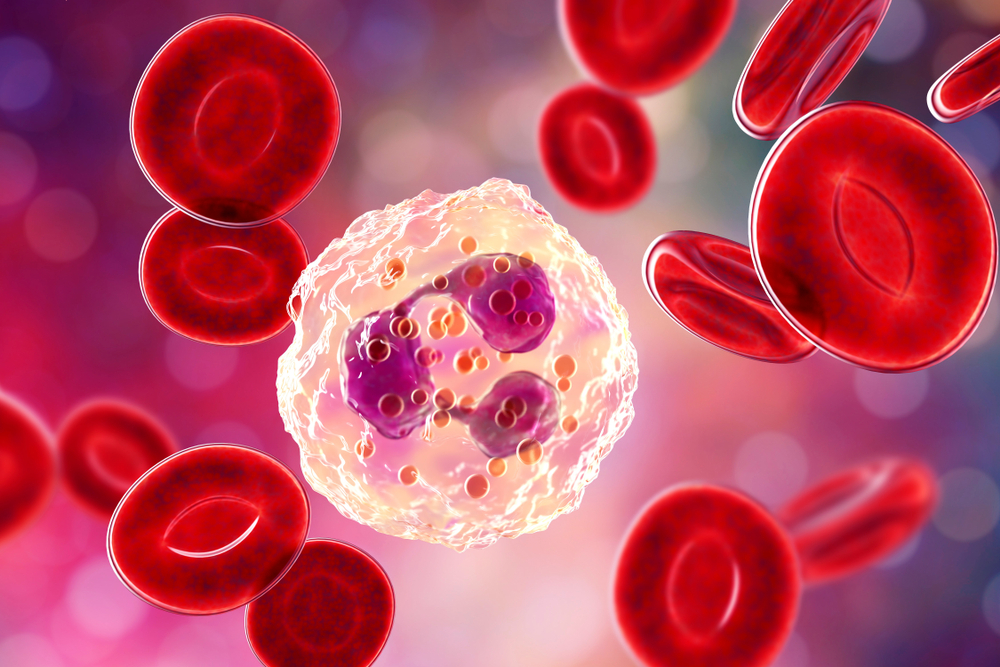
What Is Inflammation?
Inflammation is the body's natural healing response to protect itself against harm. When the body is exposed to injuries, irritants orinfections, it creates an inflammatory reaction to speed recovery.
There are two types of inflammation: acute and chronic.
- Acute inflammation typically occurs during an injury or acute infection and lasts for a few days to weeks. For example, if you bang your elbow you will probably experience pain, swelling and redness. Firstly, pain lets you know that you should protect that area while it's healing. Secondly, swelling and redness are signs of enhanced blood flow to the injured area. This blood flow delivers more immune cells, nutrients and healing factors to support healing. Although this is a natural healing response, acute inflammation can turn into chronic inflammation if not managed. (2)
- Chronic inflammation is often more subtle and can last for several months to years. It is typically caused by long-term exposures to irritants and infections. Signs of chronic inflammation include pain, fatigue, sleep disorders, mood disorders, digestive concerns and/or changes in weight. (1)
What Causes Inflammation?
Biological, environmental and lifestyle factors all play a role in the development of chronic inflammation. The following situations canlead to chronic inflammation if not managed.
- Chronic infections caused by bacteria, viruses, parasites or fungi that remain in the body. Consequently, if the body is not able to eliminate the infectious agent, it can cause chronic irritation and inflammation within those tissues. (9)
- Long-term exposure to irritants or toxins including cigarette smoke, alcohol and industrial chemicals. For example, industrial chemicals like silica dust, phthalates and pollutants can cause chronic irritation and disrupt the body's healthy immune response. (9)(10)
- Lifestyle factors including chronic stress, physical inactivity and food choices (3). For instance, chronic stress can increase the release of inflammatory cytokines within the body, contributing to an overall increase in inflammation. (1) In addition, a sedentary lifestyle can increase the risk of inflammatory conditions like heart disease and diabetes. (11) As for food choices, check out 7 Foods That Cause Inflammation for more info.
- Heightened immune reactions including sensitivities, allergies and autoimmune disease. For example, recurrent exposure to allergens and sensitivities found in food or the environment can cause persistent and long-term irritation. In regards to autoimmune disease, the body's immune system thinks that a normal component of the body is foreign. As a result, the immune system starts attacking healthy tissue causing injury and inflammation within that body part. (9) Examples of autoimmune diseases include hashimotos thyroiditis and rheumatoid arthritis.
Why Does Inflammation Matter?
When chronic Inflammation goes unchecked, it may lead to long term health problems. (2) Researchers have discovered that the following health conditions are associated with chronic inflammation.
- Diabetes and metabolic disorders. Chronic inflammation can alter insulin activity and contribute to insulin resistance. As a result, insulin will not be able to lower blood sugar levels effectively. In addition, inflammation may contribute to diabetic complications like heart disease, kidney disease and nerve damage. (4)
- Asthma. Chronic inflammation in the airways can cause the lining of the lungs to swell and increase mucus production. Consequently, the airways may narrow and be more sensitive to asthma triggers like allergens or smoke. (5)
- Heart disease, atherosclerosis and stroke. Inflammation may promote the growth of fatty plaques within the walls of blood vessels. More importantly, these plaques can narrow arteries and potentially form blood clots. These blood clots can travel in the blood and block blood flow to the heart or brain causing a heart attack or stroke. (8)
- Alzheimer's disease. Neuroinflammation, or inflammation in the brain, can cause changes in brain tissue. For example, inflammation can exacerbate the formation of amyloid β plaques and neurofibrillary tangles within the brain. (6) These structural changes are associated with the development of Alzheimer's disease.
- Cancer. According to the National Cancer Institute, chronic inflammation can cause DNA damage and lead to certain cancers. (7) Specifically, cancers of the kidneys, prostate, ovaries, liver, pancreas, colon and lung have the strongest correlation with chronic inflammation. (1)
How Do I Know If I Have Inflammation?
You can use simple at-home blood testing to measure biomarkers of inflammation within your body. For example, you can test your blood for levels of high sensitivity C Reactive Protein, or hsCRP. If hsCRPc omes back elevated on your blood test results, this indicates that your body is experiencing higher levels of inflammation, particularly in the cardiovascular system.
In conclusion, although inflammation is a natural process, it can be a silent contributor to a wide-range of chronic diseases. Thankfully, there are ways to monitor inflammation, like testing hsCRP, that can help identify inflammation before it negatively impacts your health and wellbeing.





